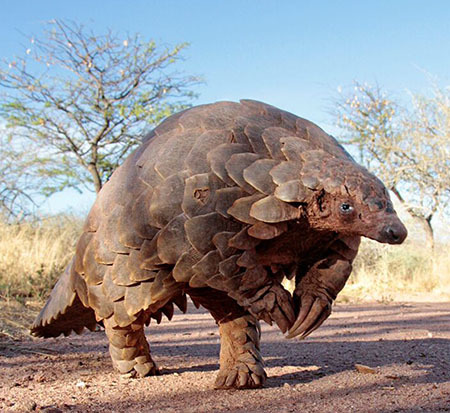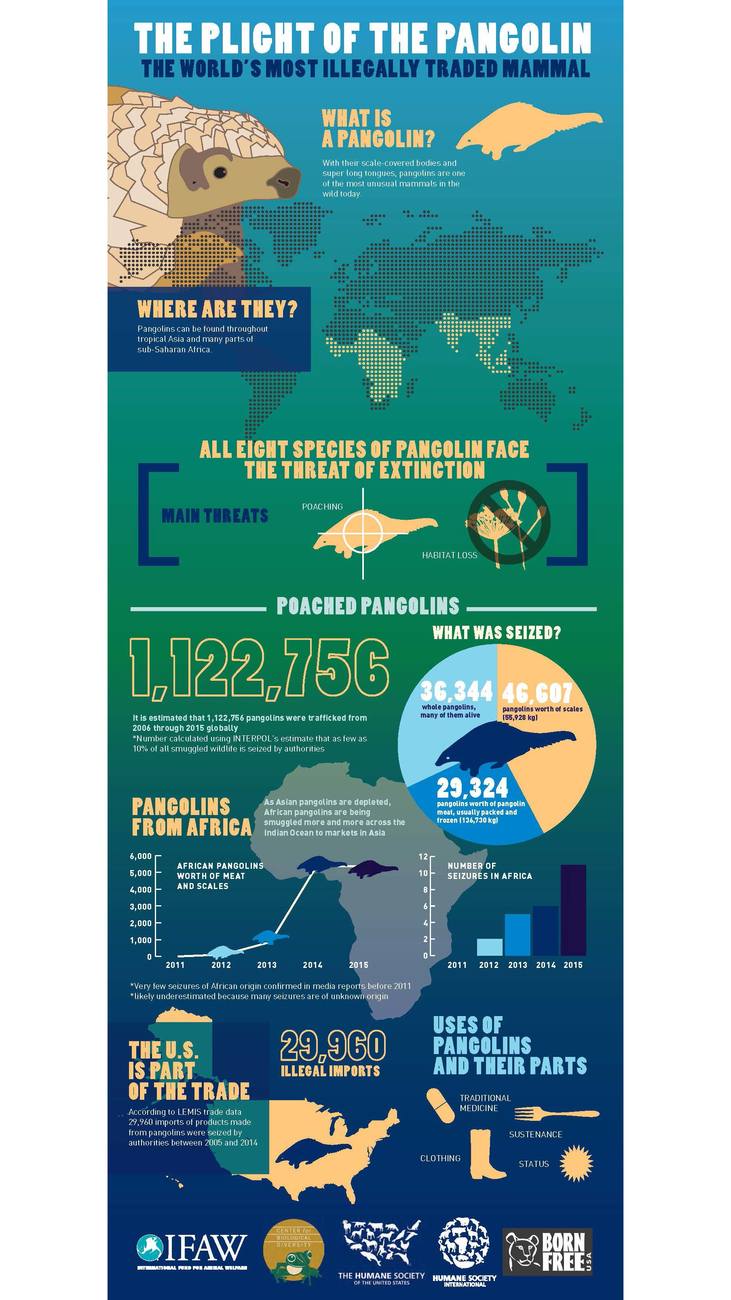Blog
Long’uro: one elephant’s story of immense resilience
Read more
Pangolins are unique, scale-covered mammals with long, sticky, tongues used to slurp up ants and termites. These “walking artichokes” curl into a protective (and nearly impenetrable) ball when threatened, which is extremely effective against large predators including lions and other big cats.
Mostly nocturnal and solitary, these shy mammals don’t normally make the front page of National Geographic. Nevertheless, pangolins are the most illegally poached mammal in the world – more than rhinos and elephants combined! Scientists have estimated that over one million pangolins have been poached from the wild and illegally traded in the past decade.
In response to the growing poaching crisis, all eight species of pangolin were transferred to Appendix I of CITES in 2016, which means they have the strictest available protection from international trade. But, while most range countries have laws on the books protecting pangolins, lack of enforcement and light penalties have allowed for unabated poaching and smuggling. According to the IUCN, two species are “Critically Endangered," two are “Endangered,” and four are “Vulnerable” to extinction primarily due to international trade.

IFAW is helping to increase legal protections for these amazing animals on both international and national levels. In June 2015, IFAW helped organize and facilitate the first ever Pangolin Range State Meeting in Da Nang, Vietnam, and toured Vietnam’s only pangolin rehabilitation center.
In July 2015, IFAW co-authored a petition to list all eight pangolin species as Endangered under the U.S Endangered Species Act. The U.S. government is currently conducting a full review after giving the petition a positive 90-day finding in March 2016.
In 2016, IFAW led a coalition of scientists, experts, and like-minded conservation groups in pangolin conservation on the international stage. In September, IFAW attended the IUCN World Conservation Congress and spearheaded the successful effort to pass a resolution confirming the need for pangolin conservation at every level. Less than a month later at the CITES Conference of Parties, the same coalition successfully worked with a diverse group of country representatives to transfer all eight pangolin species to Appendix I of CITES; the most stringent protection available.
In 2017, IFAW will be working to improve protections for pangolins and save them from the poaching crisis. We are working with governments, scientists, and other conservation groups to expand awareness for the plight of pangolins, fill scientific knowledge gaps, and improve enforcement of anti-poaching laws.

Our work can’t get done without you. Please give what you can to help animals thrive.
Unfortunately, the browser you use is outdated and does not allow you to display the site correctly. Please install any of the modern browsers, for example:
Google Chrome Firefox Safari